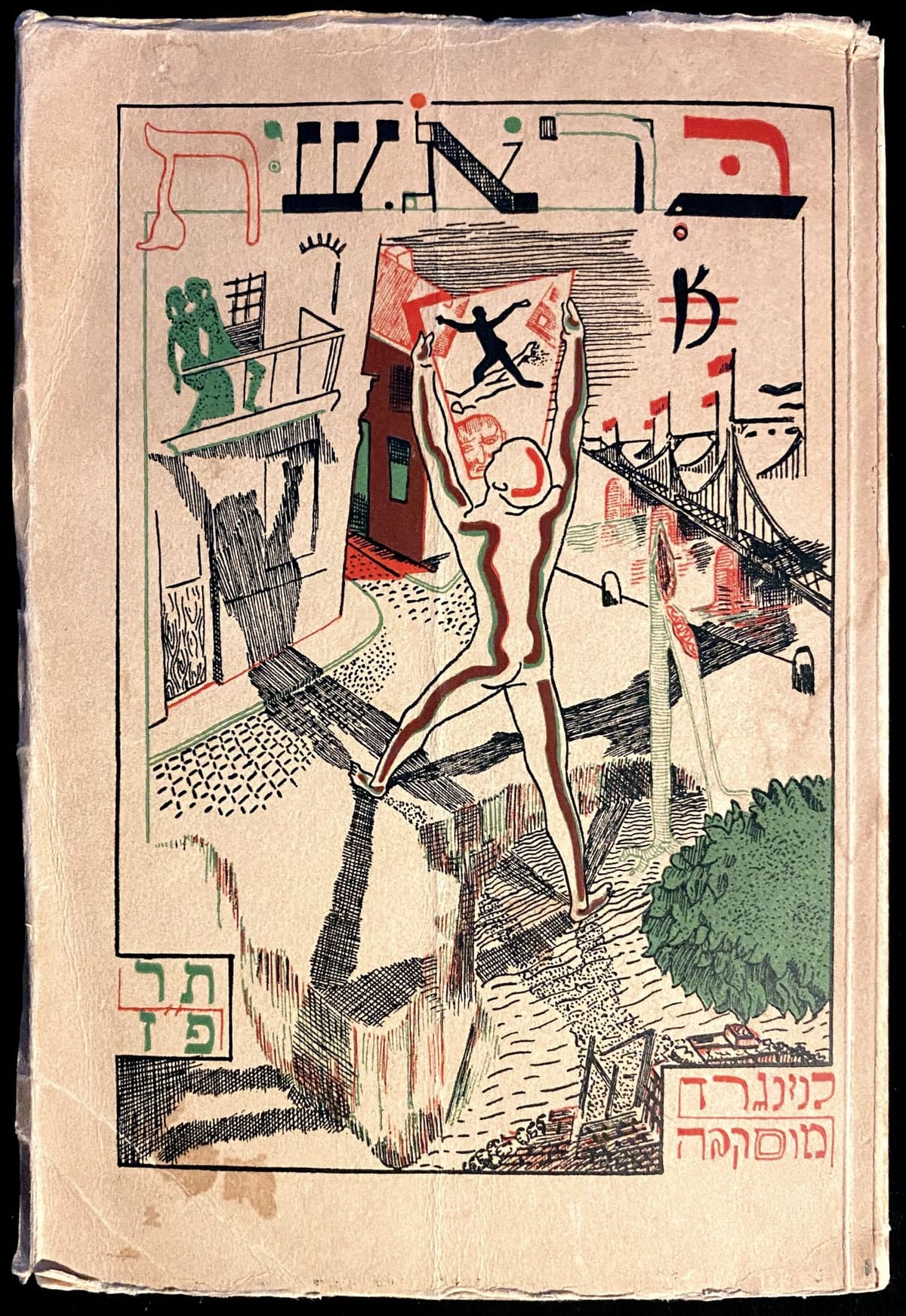Bereshis and Cyclical end-beginnings / בראשית און ציקלישע סוף־אָנהייבן
How are we supposed to find fresh joy when every day is the worst day yet? On the time spirals of horror and resilience.

This is a weekly series
of parsha dvarim (Tōrah commentaries) written by an orthodox atheist transsexual anarchist, with guest posts from comrades. It's the work of each generation to extricate meaning from our cultural and religious inheritance, and it's crucial that we resist the narrative that Zionism owns Judaism. We aim to offer comment which is true to the pshat (i.e. engages with the plain meaning of the text, especially when it's difficult) and uses Tōrah like a light to reflect on our modern times.
Read more commentary on parshas Bereshis.
Bereshis 1:1
The parsha this week covers Judaism's primary creation myth and the almost-immediate fall of man. This is the beginning of the Torah, and the beginning of the annual learning cycle. It's (roughly) the beginning of the Jewish year. The beginning of my weekly parsha newsletter.
But it doesn't feel like the beginning of anything. We're one year into what can only be described as a genocide in Palestine, funded by America and Europe in the name of "Jewish safety" (read: Western imperialism). No one even pretends to care about the hostages anymore as a justification for flattening Gaza, displacing thousands in the West Bank, and striking Beirut. The world has felt like it's been in rapid decline since the Gulf War, America's first Forever War. The Doomsday Clock is at 90 seconds to midnight. We are not in the beginning. We're not in even in the beginning of the end.
How are we expected to greet each year, each week, each Shabos, each yontif, each morning as though it were completely new? How are we supposed to find fresh joy in the world when every day in Palestine is the worst yet; when every day, new depths to the horrors of war are revealed?
It is a profoundly lonely time to be an antizionist Jew, or a Jewish leftist, or an orthodox antizionist trans Jewish leftist. But still we read and wrestle with Torah.
Bereshis 4:10
The whole parsha paints a bleak picture of humanity. After Hashem creates everything else, man/Odom (aka Adam) is formed from dust and woman/Khava (aka Eve) is formed of man. (There's so much gender this week, but for once that's not what I want to talk about.) Odom and Khava disobey Hashem and eat from the Tree Of Knowledge Of Good And Evil; they gain knowledge, and shame. They are cursed for their transgression: Odom to till the land, itself now cursed; and Khava to painful childbirth and subjugation from her husband. They are both cursed to share a mutual hostility. They are exiled from Gan-Eydn. Their first son, Kain, murders his brother Hevel (aka Abel). Many more people are born and die, and none merit more than a mention of their name, their age, and sometimes their occupation. Our main characters die, and Yiddishkeyt moves on.
On a meta level, the parsha paints a bleak picture of Jews: what do we think of people that this is our creation myth? Humanity is inherently flawed—or worse, evil. We are gullible, ungrateful, disobedient, cursed, ashamed, burdened, jealous, and violent. We are far from Godliness, which we are supposed to associate with goodness. We are not good.
This is the end of the public preview. Sign up for $5 a month to read the full dvar and support trans antizionist Tōrah scholarship.
Money shouldn't a barrier to accessing writing, art, and culture. If $5 a month isn't sustainable for you, please email me and I'll send you the link to sign up for free.




